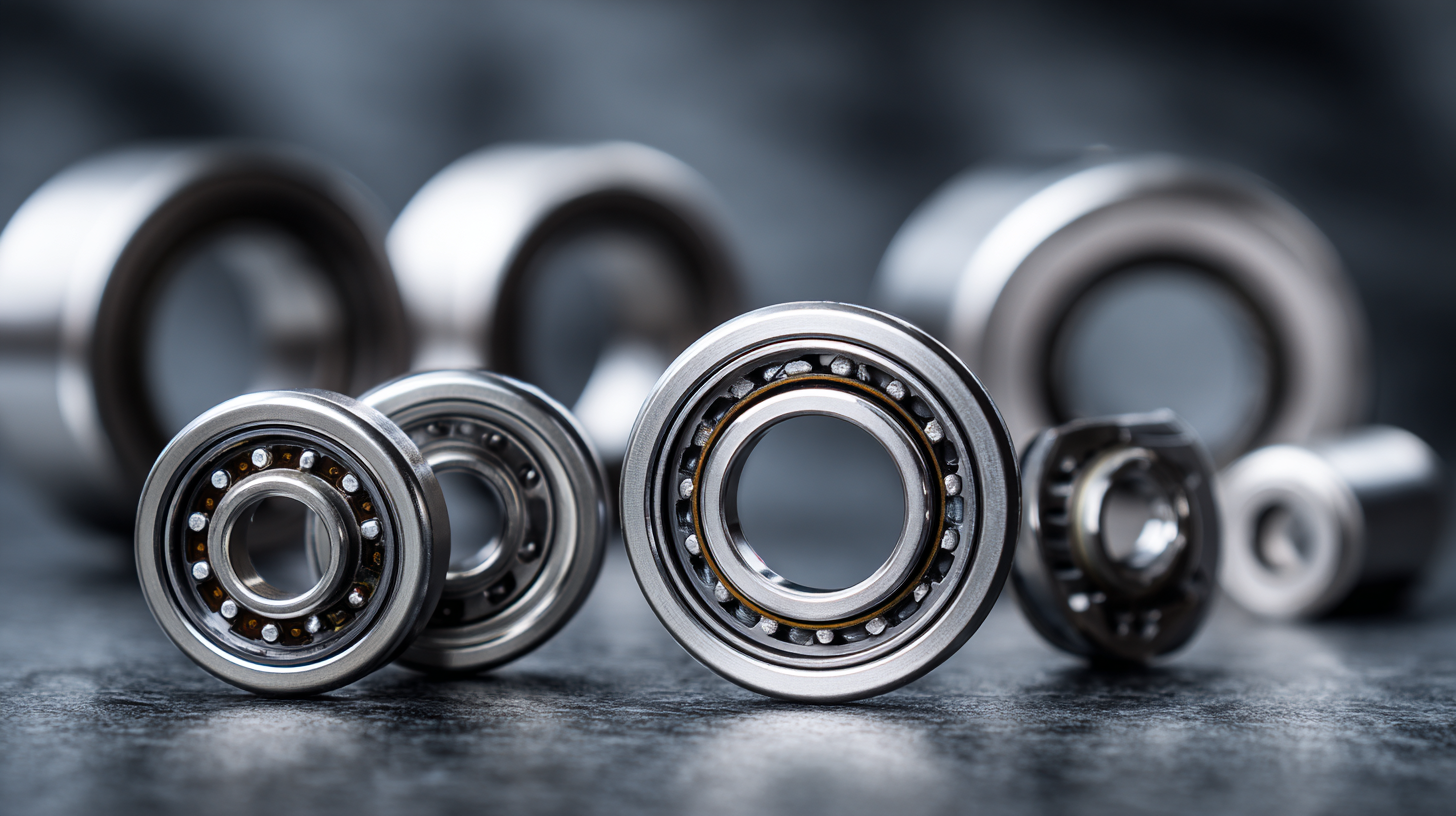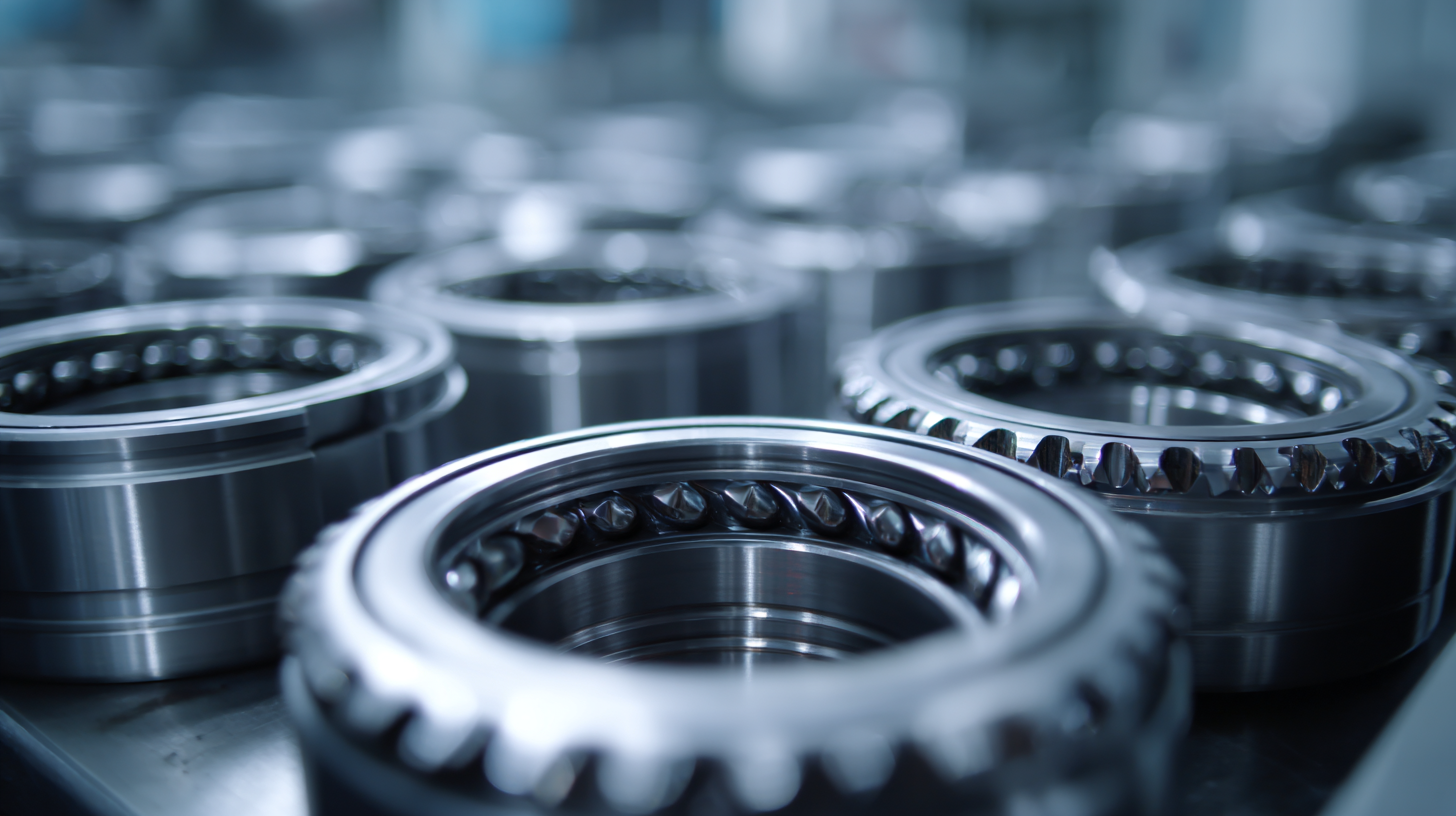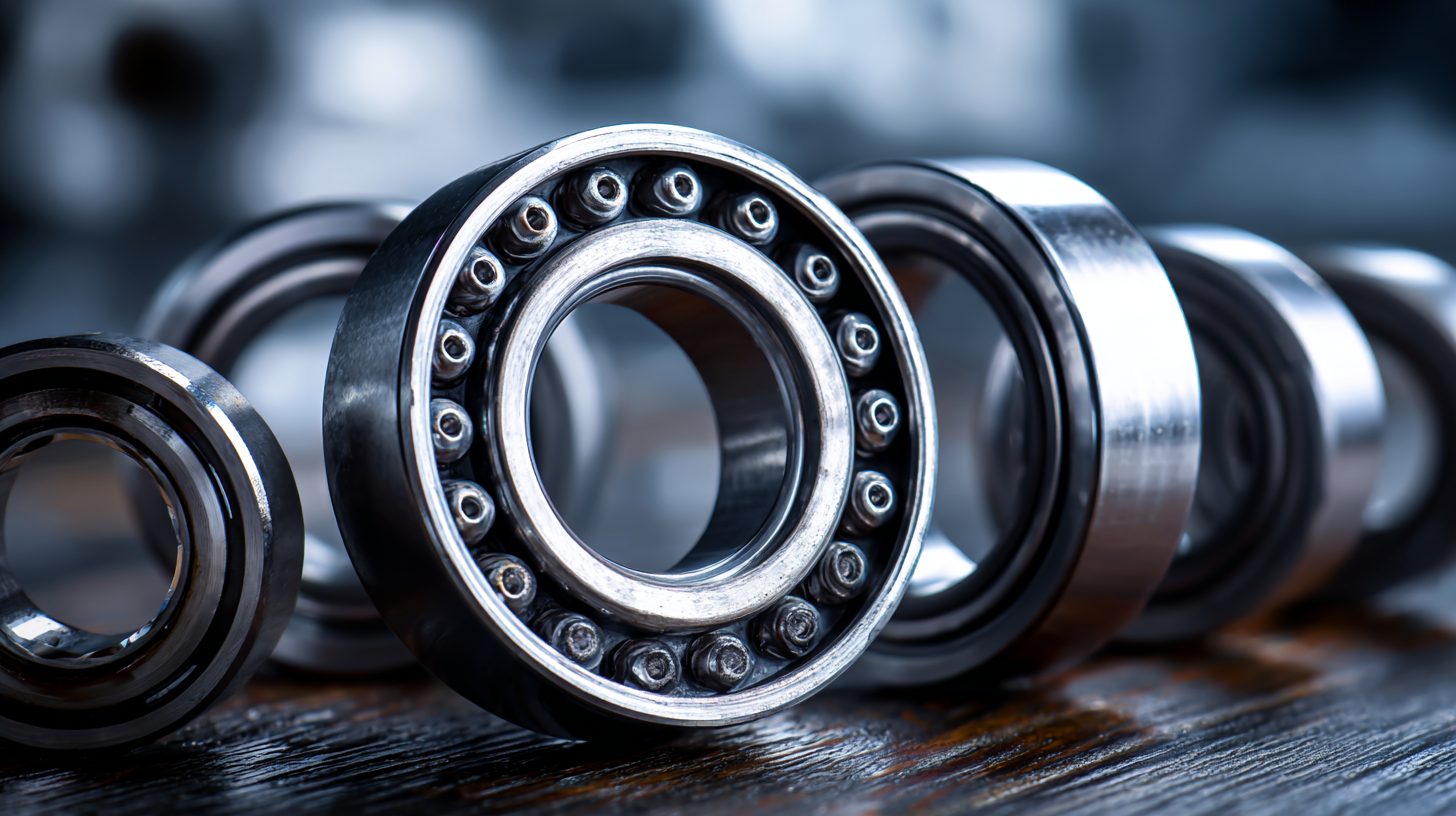China Leading the Way in Global Manufacturing of Best Radial Ball Bearings
In the ever-evolving landscape of global manufacturing, China stands out as a formidable leader in the production of Radial Ball Bearings, a critical component in various industries such as automotive, aerospace, and machinery. According to a recent report by Research and Markets, the global radial ball bearings market is projected to reach $12 billion by 2026, growing at a CAGR of 5.2%. This growth is driven by the increasing demand for high-performance bearings that enhance machinery efficiency and longevity. With robust manufacturing capabilities, advanced technology, and a commitment to quality, China is not only meeting local market needs but also positioning itself as a key supplier in the international arena. As businesses worldwide seek to optimize their production capabilities, the advantages of Chinese-made Radial Ball Bearings—ranging from cost efficiency to high reliability—make them an indispensable choice for manufacturers aiming to stay competitive in a rapidly changing market.

China's Dominance in Radial Ball Bearings Manufacturing by 2025
As the world shifts towards an increasingly interconnected economy, China's influence over the manufacturing sector, particularly in
radial ball bearings, is poised to grow significantly by 2025.
This surge in production is underpinned by China's vast industrial infrastructure, a skilled workforce, and continuous investment in technology and innovation.
By leveraging these advantages, China is not only able to meet its domestic demand but also serve international markets with high-quality
radial ball bearings at competitive prices.
Moreover, Chinese manufacturers are adopting advanced automation and smart manufacturing practices, enhancing their efficiency and production capacity.
This embrace of cutting-edge technologies, such as IoT and AI, allows for rapid adaptation to market trends and
customer needs. As a result, China's role as a global leader in radial ball bearings manufacturing is solidified, potentially eclipsing other
traditional manufacturing powerhouses.
The trajectory indicates a robust export market, particularly within industries reliant on precision components, making China's dominance
more pronounced as the deadline of 2025 approaches.
Key Market Trends Shaping the Future of the Bearings Industry
The global bearings industry is undergoing significant transformations, with key market trends driving innovation and reshaping production paradigms. One of the most prominent trends is the increasing demand for high-performance radial ball bearings across various sectors, including automotive, aerospace, and industrial machinery. This heightened demand is a response to the rigorous quality and durability standards set by manufacturers, prompting them to seek out suppliers capable of delivering advanced materials and cutting-edge designs.
Another critical trend is the shift towards smart manufacturing and automation within the bearings sector. Manufacturers are leveraging advanced technologies, such as IoT and AI, to enhance production efficiency and monitor product performance in real-time. This move not only optimizes operational processes but also empowers companies to provide better predictive maintenance solutions to their clients, ultimately extending the lifespan of radial ball bearings. As China continues to lead the global manufacturing landscape, its focus on these trends positions it favorably to meet the evolving needs of the bearings market and drive the industry forward.

Comparative Analysis: China vs. Global Competitors in Bearings Production
As the leading force in the global manufacturing of radial ball bearings, China has positioned itself as a key player in a competitive landscape. In recent years, many manufacturers worldwide have struggled to keep pace with China's innovations and production efficiencies. While traditional leaders in bearing production like Germany and Japan are still respected, they face challenges in terms of cost and scalability. China's ability to leverage its vast resources and workforce provides a significant advantage, enabling mass production without compromising quality.
When comparing China to its global competitors, one crucial aspect is the investment in modern technology. Chinese manufacturers have embraced automation and advanced manufacturing techniques, which not only reduce production costs but also increase precision in bearing production. For companies looking to compete, investing in cutting-edge technology is essential for maintaining market relevance.
Tip: To enhance your bearing production process, consider collaborating with technology partners who specialize in automation solutions. Additionally, prioritizing employee training on new manufacturing tools can lead to improved productivity and product quality. Emphasizing a culture of continuous improvement will keep your business agile amid global competition.
China Leading the Way in Global Manufacturing of Radial Ball Bearings
Innovations Driving the Quality and Efficiency of Radial Ball Bearings
In recent years, China has emerged as a global leader in the manufacturing of
radial ball bearings, driven by innovative technologies that enhance both quality and efficiency.
According to a report by MarketsandMarkets, the global ball bearing market is projected to reach
$20.57 billion by 2025, with a significant portion of this growth attributed to advancements in manufacturing processes within China.
This growth is fueled by the adoption of precision engineering and automation, which allows
Chinese manufacturers to produce ball bearings that not only meet rigorous international standards but also provide
optimized performance for various applications.
One of the key innovations in the industry is the integration of smart manufacturing technologies,
such as the Internet of Things (IoT) and artificial intelligence (AI). These innovations enable real-time monitoring of production lines,
significantly reducing downtime and defects. A study from Grand View Research highlights that the
adoption of automation in bearing manufacturing can increase production efficiency by up to
30%. This level of efficiency not only lowers costs but also enhances the overall quality of
radial ball bearings, ensuring that they meet the demanding needs of sectors like automotive and aerospace. As China continues to invest
in research and development, its position in the global ball bearing market is set to strengthen,
spearheading a new era of high-performance manufacturing.
Practical Tips for Businesses to Optimize Their Bearings Supply Chain in China
China has established itself as a leader in the global manufacturing of radial ball bearings, contributing significantly to a market projected to reach $30 billion by 2025, according to recent industry reports. The country's advanced technology, extensive production capabilities, and competitive pricing have made it a prime destination for businesses looking to optimize their bearings supply chain. However, understanding how to navigate this landscape is crucial for maximizing efficiency and cost-effectiveness.
Tip 1: Evaluate suppliers thoroughly. Conduct comprehensive assessments of potential manufacturers by reviewing their certifications, production capacity, and quality control processes. According to the International Bearing Association, adherence to international standards such as ISO 9001 can significantly reduce the risk of defects in bearings.
Tip 2: Leverage local expertise. Collaborating with local experts can provide insights into navigating regional regulations, labor considerations, and logistical challenges. Industry reports indicate that companies that engage local consultants can cut supply chain costs by up to 20% due to better negotiation strategies and streamlined operations.
By taking these practical steps, businesses can significantly enhance their bearings supply chain, ensuring they remain competitive in an increasingly globalized market.

Home
Products
Industrial Bearings
Deep Groove Ball Bearings
Self-Aligning Ball Bearings
Angular Contact Ball Bearings
Cylindrical Roller Bearings
Taper Roller Bearings
Spherical Roller Bearings
Bearing housing or Accessories
Miniature Bearing
Thrust ball bearing
Radial Spherical Plain Bearing
Pillow Block Bearing
Needle Roller Bearings
Automotive Bearings
Agricultural Bearings
Special Material Bearings
Industry Application
About Us
News
Contact Us





